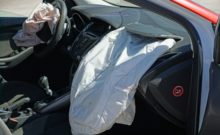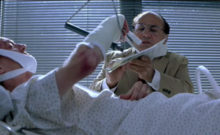It’s so fully integrated into our vernacular that it goes unnoticed, but there are definite connotations to calling motor vehicle collisions “accidents.” If you ever have the opportunity to sit in on a car insurance claim dispute, you’ll notice the attorneys on each side speak very differently about the same incident. You’ll hear one side talk about “crashes,” “wrecks,” and “collisions;” maybe an “accident” or two might slip in there just because the term is so commonly used. The other side—the insurance attorneys—might say “collision” once in a while, but I guarantee they will harp and dwell on the term “accident.” Accident, accident, accident.
The reasons for this are clear. Wrecks, crashes, and collisions describe two objects running into each other. They might sound a little dramatic; the term “wreck” in particular conjures images of flying debris and visceral mayhem. “Accident” is a special term and is the best friend of an insurance defense lawyer. It implies no fault, an act of God, and something that could happen to anyone.
But what do the numbers tell us? The National Highway Traffic Safety Administration groups motor vehicle collisions into two broad categories: those caused by driver error and those caused by anything else. A whopping 94% of collisions are caused by driver error. This includes crashes caused by distracted driving, drunk driving, drowsy driving, and other errors related to decision, recognition, and performance. True accidents do exist, such as those caused by unforeseeable road or environmental conditions, but this does not describe the overwhelming majority of cases.
Besides being misleading and generally inaccurate, the term “accident” is problematic in other ways. Its prevalence may contribute to a general permissiveness in our culture toward dangerous driving habits. It’s not fair to anyone to conclude, “Oh well, accidents happen! Nothing we can do about it!” Try telling that to family members grieving the death of a loved one killed by a drunk driver. It wasn’t an accident. It was a decision. Someone made a decision to get behind the wheel while intoxicated.
Such decisions lead to tragic consequences.
Chris Beckstrom







